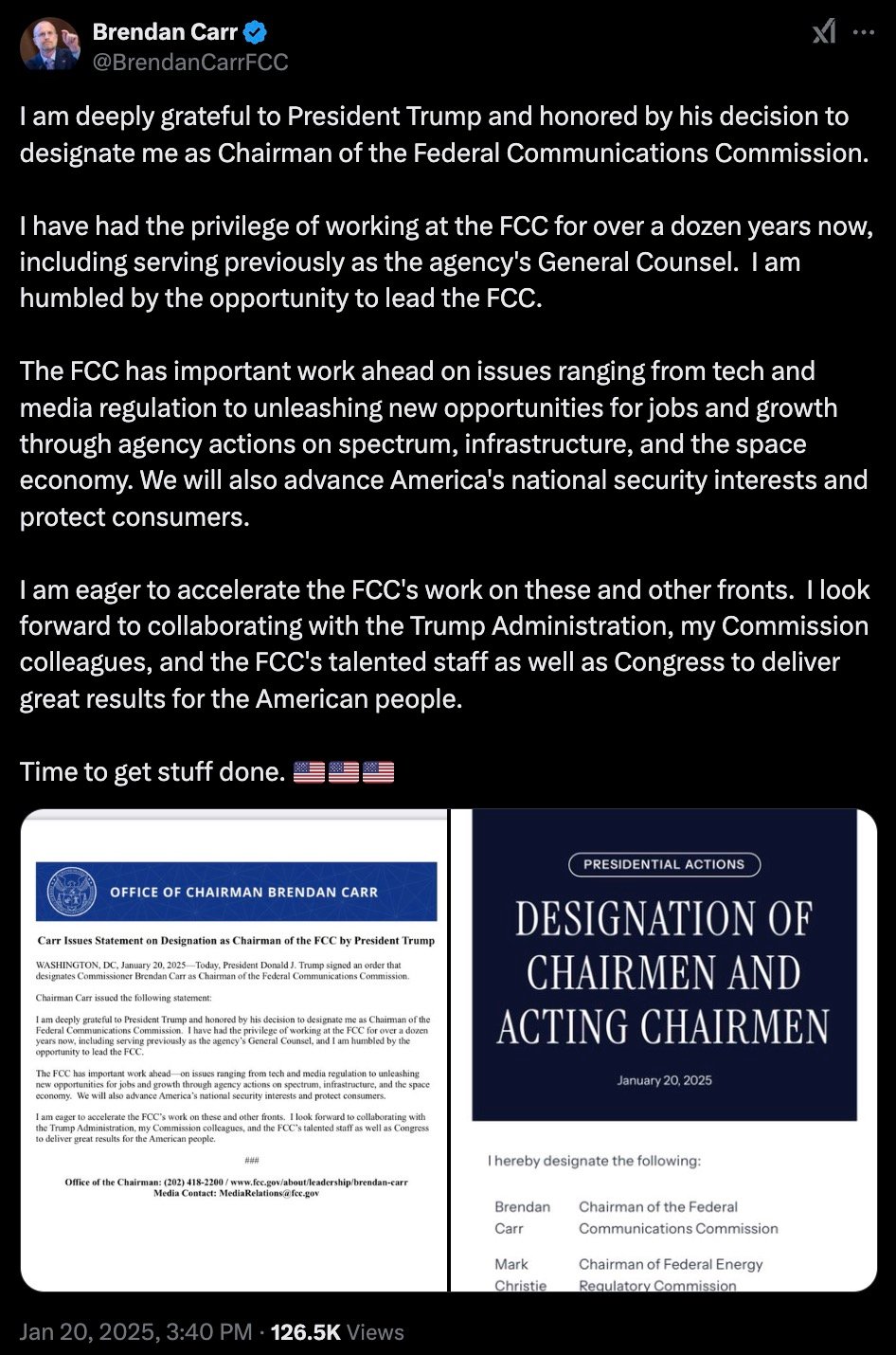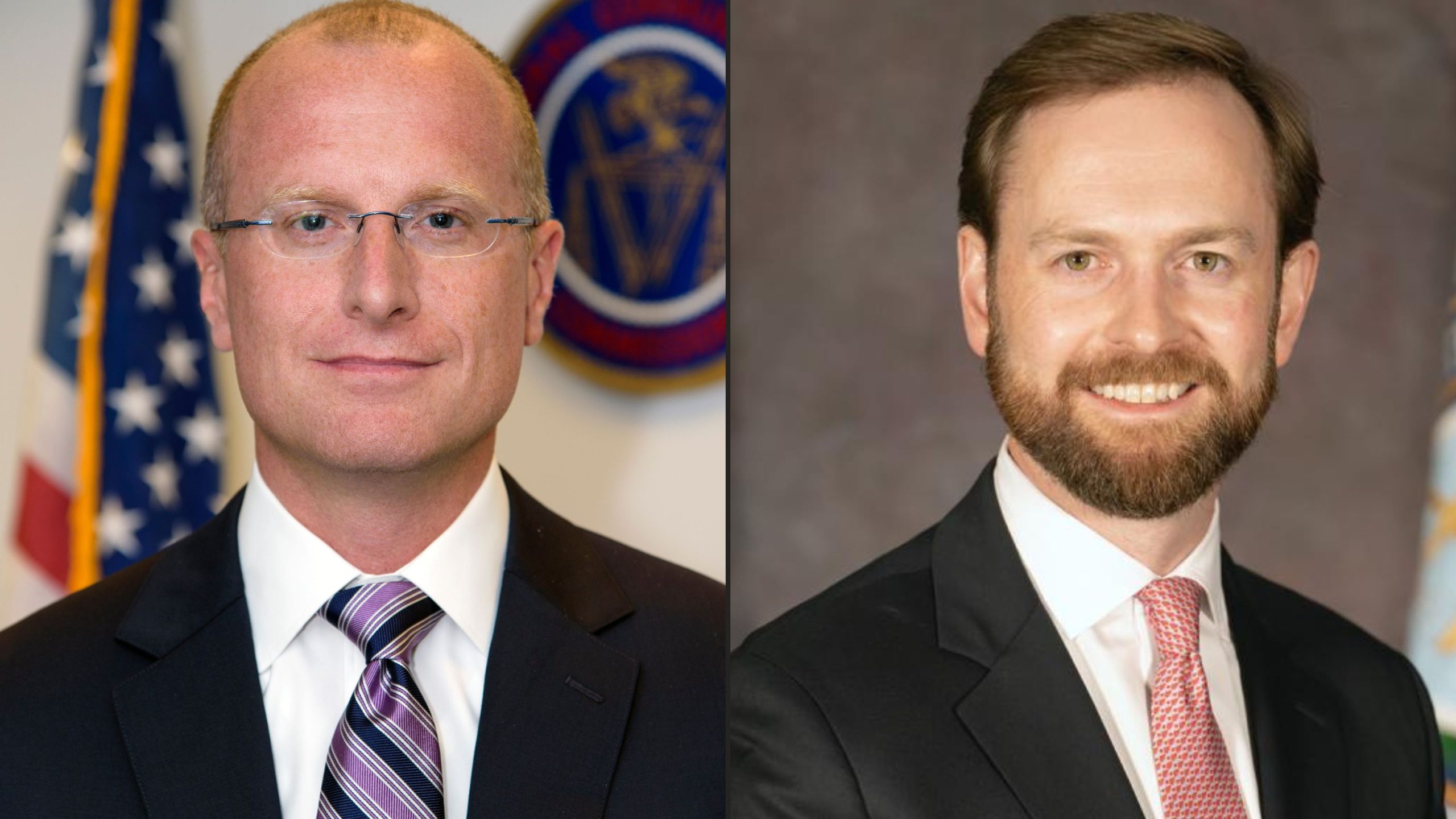Two of the US regulatory bodies that have the key influence on the internet and the tech industry, the Federal Communications Commission (FCC) and the Federal Trade Commission (FTC) have new chiefs: Brendan Carr and Andrew Ferguson.
President Trump on Monday officially designated them to these positions, meaning that their appointment will not require congressional approval.
In the past four years, which brought unprecedented and previously unimaginable levels of pressure on tech companies to suppress free speech including through antitrust behavior, both the officials – who have for some time now served as members of their respective commissions – emerged as opponents of such policies.
During the previous administration, Carr and Ferguson demonstrated an understanding of the depth of the censorship that engulfed the US, but also other parts of the world.
And they made references to the links between corporate entities, like massive advertising groups, that then formed anti-competitive “cartels” together with third-party “fact-checkers,” “raters,” etc., with the final “product” – online censorship.
Now legacy media unhappy with the appointments of the two Republicans lament “the good old days” when the Democrat chair-led FTC, for example, “aggressively” went after tech giants with threats of breaking them up on antitrust grounds – but never mentioning how that ties into censorship, or taking any action to stop it.
However, the choice could be seen as yet another form of indirect government pressure – “this is what might happen if you don’t behave on other issues” – with the goal of protecting a competitive online economy possibly being a smokescreen.
Still with the legacy outlets, they are hoping that the work already started by the FTC will somehow result in a clash between the new White House and Big Tech bosses, many of whom are this time openly supporting President Trump.
That could be self-serving, but it could also be an example of what happens when many years of government-backed pressure is lifted off somebody’s shoulders.

Meanwhile, Carr responded to the news by promising to work on tech and media regulation, economic growth in the sector, and protecting consumers and national security, while Ferguson spoke about “usher(ing) in America’s Golden Age.”










